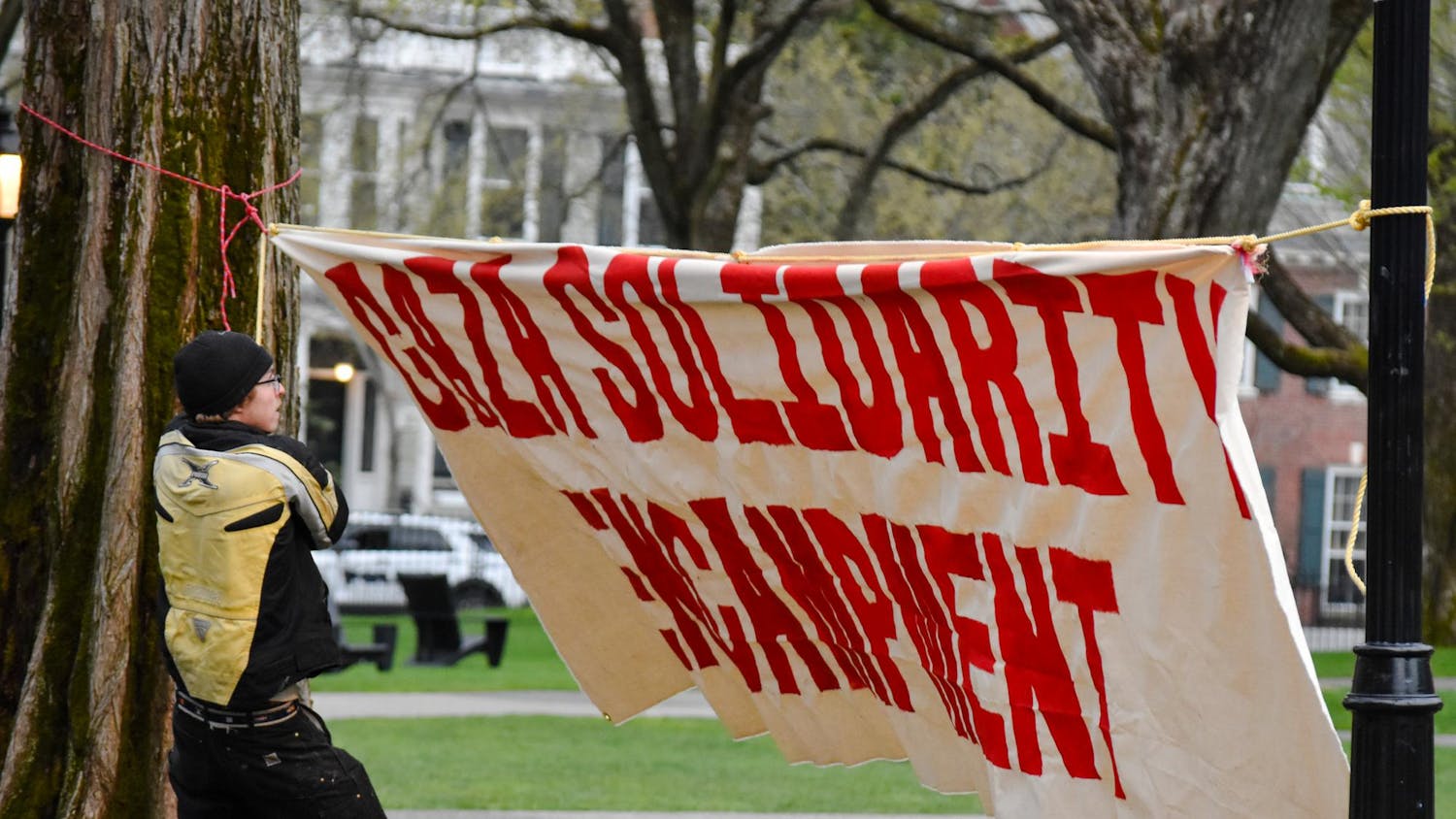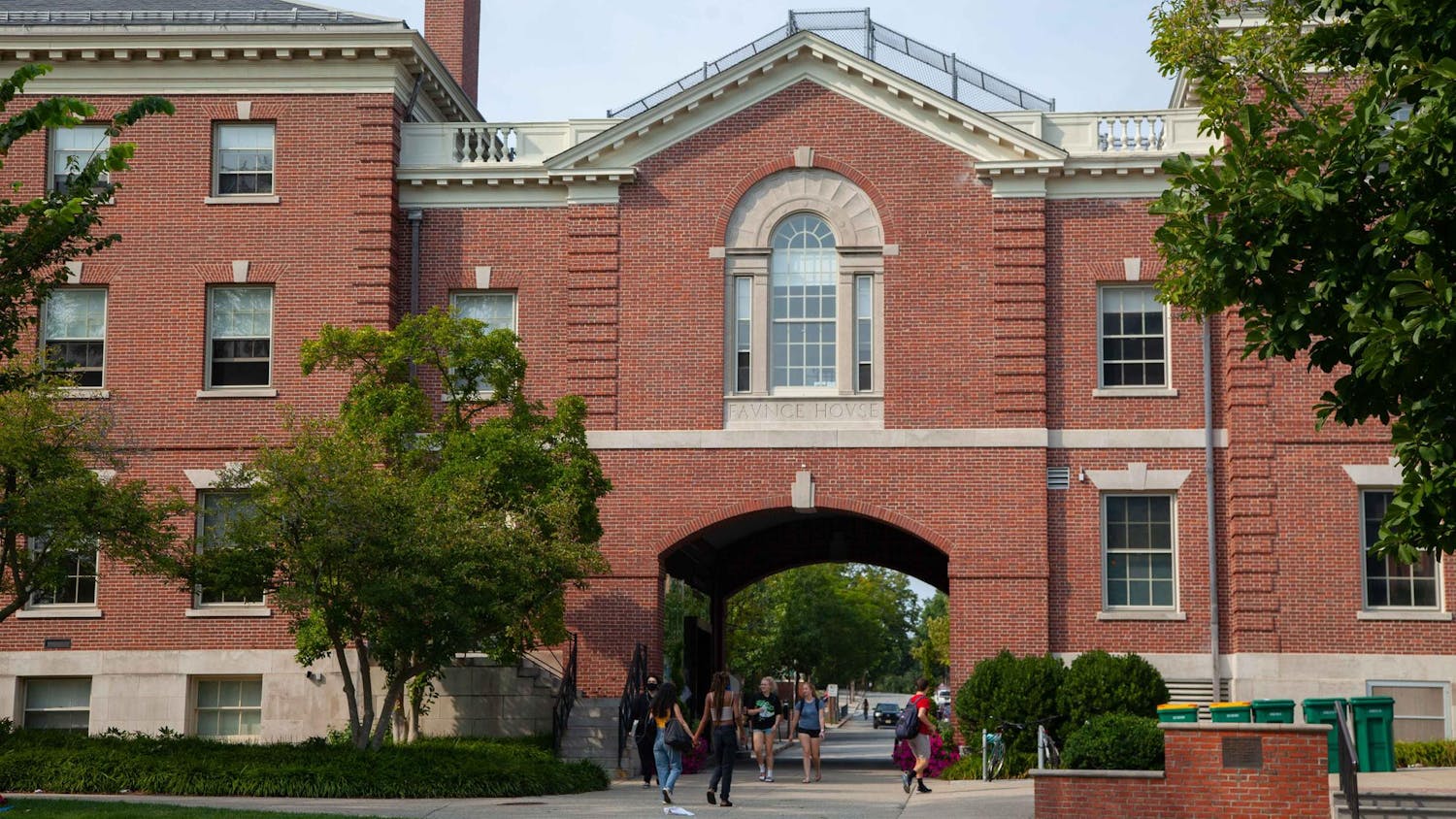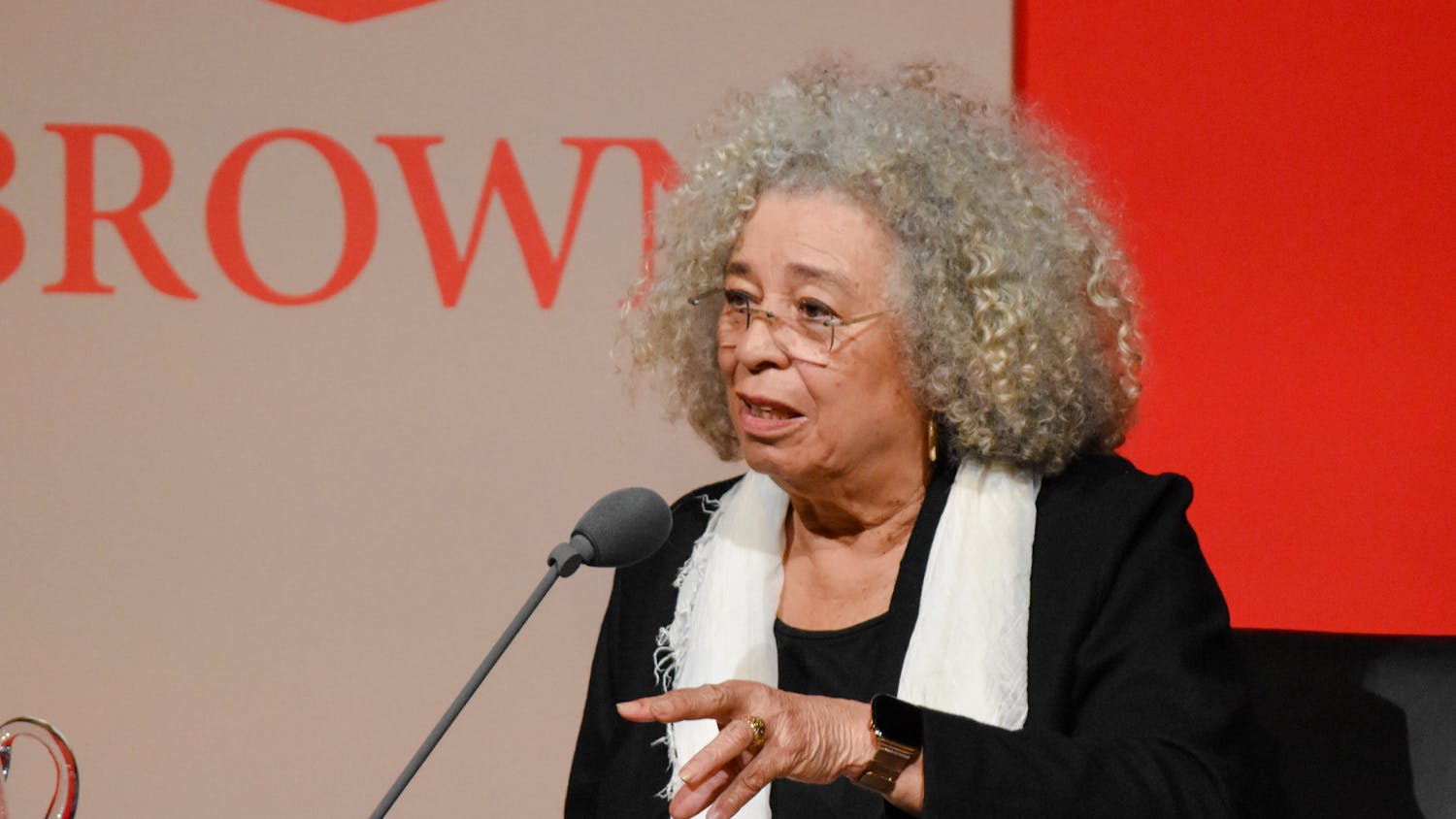A prominent Democrat and a prominent Republican came together Monday afternoon to stage a lively discussion in the spirit of “disagreeing without being disagreeable,” said Tom Perez ’83 P ’18, chair of the Democratic National Committee.
Perez spoke with former Republican National Committee Chair Michael Steele about immigration, healthcare and the economy as part of the Watson Institute for International and Public Affairs’ Distinguished Speaker Series.
The event, entitled “In Conversation with Tom Perez and Michael Steele,” consisted of an hour-long debate moderated by Susan Moffit, director of the Taubman Center for American Politics and Policy, followed by questions from the audience.
Perez and Steele disagreed on some of the United States’ most pressing political issues, especially healthcare.
“I believe that healthcare can and should be a right for all, and frankly we’re about 90 percent of the way there because of the Affordable Care Act,” Perez said. “If states expanded Medicaid who aren’t expanding Medicaid, we would be closer to 95 percent of the way there.”
Steele took a different approach, contending that American political culture will not allow for Democrats and Republicans to get what they want in terms of healthcare legislation, as their views of healthcare policy will never fully align. Instead, he said the closest we will get to a perfect healthcare bill is one that both parties “weren’t that crazy about.” “The future rests in the hybrid,” Steele said, in which citizens have a choice between the Medicare system or the private market.
Despite their differences in ideology, both Perez and Steele agreed that American politics have become more polarized. Perez, a former advisor to late Democratic Senator Ted Kennedy, pointed to a 1996 immigration bill on which Kennedy worked extensively with former Republican Senator Alan Simpson.
“There were elements of the bill that Senator Kennedy didn’t like, there were elements of the bill that I’m confident Senator Simpson didn’t like,” Perez said. “And yet, in the aggregate, they came together around the notion of principled compromise.” In the current Republican Party, which Perez called the “Party of Trump,” bipartisan efforts like those between Kennedy and Simpson “aren’t allowed to be discussed.”
Steele, a self-proclaimed Lincoln Republican, also sees a problem in the current political leadership’s unwillingness to compromise. “You have to recognize that sometimes a zero-sum attitude is not going to win the day for you,” he said. “You’re going to have to make some tough decisions, and you’re going to have to prioritize.”
Perez sees hope for the future in increased political participation. “The election of 2016 awakened people to the fact that democracy cannot be a spectator sport,” he said. “When I come here to Brown, the energy I see on this campus gives me incredible cause for optimism.”
Sydney Smith ’22 and Kimberly Collins ’22, who participate in Perez’s and Steele’s study groups for undergraduates, came to hear the differences between two political minds at opposite sites of the spectrum.
Smith emphasized the importance of knowing what “major players in the political game are thinking, even if you don’t necessarily agree with them. It’s good to know the ideas that are circulating so you can better fine-tune your own.”
Collins saw value in Perez and Steele’s attention to political history. “We can’t singularly look at any one period of time,” she said. “We have to both look at what came before and what may be coming after in order to get the best evaluation of our political circumstances.”





